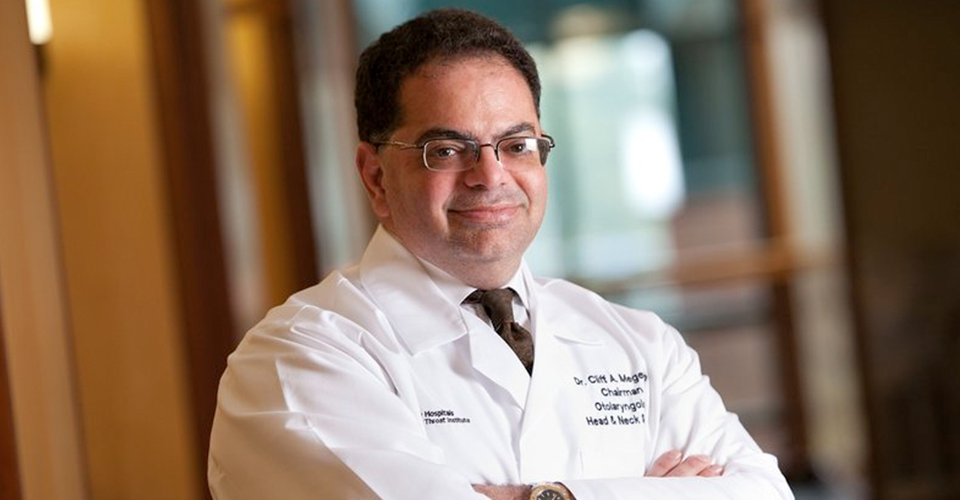No one can predict the future of health care. But it’s safe to say that the transformational leadership skills displayed by Cliff Megerian, M.D., CEO of University Hospitals, during the last crisis-filled year will always be in demand.
That’s why Dr. Megerian was the choice for NEOMED’s keynote speaker at its 41st Commencement, said President Langell at the virtual event held Saturday, May 1. What better example to give the 229 graduates of the Colleges of Medicine, Pharmacy and Graduate Studies, than this leader of a world- renowned Cleveland institution with which NEOMED has a growing partnership to train its students and graduates?
At University Hospitals, Dr. Megerian leads a comprehensive health system with annual revenues of $4.4 billion, 20 hospitals, more than 50 health centers and outpatient facilities, and over 200 physician offices across 16 counties. Four principles guide this graduate of the University of Michigan Medical School in what he calls the science of leadership.
In his keynote address, Dr. Megerian passed along these tenets to the new graduates.
- Consumerism: In the marketplace of clothes and cars, the needs and desires of consumers are at the center. That hasn’t necessarily been the case in the health care marketplace, but it should be, said Dr. Megerian. The challenge to physicians is also an opportunity deliver an exceptional experience, improve access to care and ensure the highest value at the lowest possible cost. During the pandemic, when patients looked for virtual care, there turned out to be some advantages for patients and clinicians alike, he noted.
- Self-education: COVID-19 was a reminder that no matter how much you know, you will always need to continue learning on the job. Developing new leadership skills along with clinical skills is important, said Dr. Megerian, who completed a residency in otolaryngology at Case Western Reserve University as well as a research and clinical fellowship in otology and neurotology at Harvard Medical School, Massachusetts Eye and Ear Infirmary.
- Practice honesty, transparency and accuracy: If you don’t have all the answers, the worst thing you can do is pretend that you do, noted Dr. Megerian. As Benjamin Franklin said, “It takes many good deeds to build a good reputation, and only one bad one to lose it.”
- Distinguish yourself with compassion: What your patients will remember most is how you made them feel. During the pandemic, many health care providers stepped in emotionally for family members who weren’t allowed to be present at the patient’s bedside. Intangible but deeply meaningful emotional skills help the best caregivers alleviate pain, suffering and fear.
